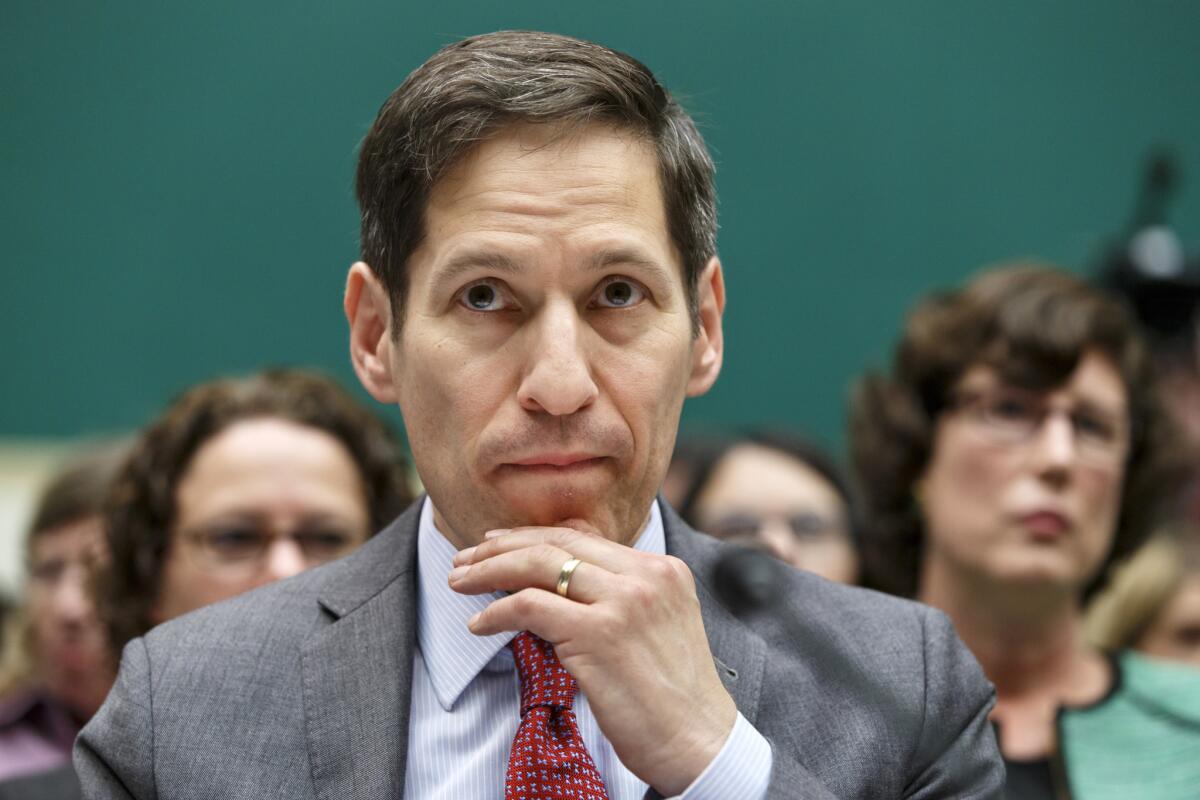CDC chief: ‘World of difference’ in Ebola fight, but complacency a risk

- Share via
The fight against the Ebola virus in West Africa has seen some “real momentum and progress” in the last few months but remains imperiled by complacency as hot spots of the disease continue to sprout across the region, the head of the U.S. Centers for Disease Control and Prevention said Monday.
Recently returned from a trip to the three most affected countries in the outbreak, CDC Director Thomas Frieden said there’s a “world of difference” between what he saw during his visit to the region in August and September and the situation now.
“I’m hopeful about stopping the epidemic, but this is going to be a long, hard fight,” Frieden told reporters in a call Monday. “The challenge is not to let up, not to be complacent and to really double down on the effort and the intensity of outreach for each and every case.”
Frieden highlighted some of the most alarming concerns in the region, including that medical aid group Doctors Without Borders recently reported a one-day shortage of beds to isolate patients in the capital of Guinea for the first time since the outbreak began.
He also pointed out that in Liberia, where health officials have vastly scaled up their Ebola response in the capital, Monrovia, and gained the upper hand in the fight against the disease, small response teams are now busy responding to hot spots of transmission in remote areas of the country.
“We described this in the past as a forest fire,” Frieden said. “It’s not really so much a forest fire as it is a country with many, many brush fires.”
And he said that in Sierra Leone, currently the country with the highest number of Ebola cases, at least 10 people confirmed to have Ebola are dying every day outside of treatment centers, meaning they can potentially spread the disease farther.
“It is encouraging to see that when we get to a place where Ebola is spreading quickly, we can end that cluster within a month or two, but the problem is, there are clusters all over and new ones popping up all the time,” Frieden said.
The latest numbers released by the World Health Organization show that the disease is believed to have infected more than 19,000 people and killed more than 7,500, a picture vastly different from the dire one the CDC painted in September with its projection that there could be as many as 1.4 million cases of Ebola by January’s end if nothing further was done.
Still, Frieden said, the progress West African countries have made in the outbreak could be endangered by complacency.
To shut down the Ebola outbreak, Frieden told reporters, healthcare workers must continue adhering to strict protocols and use of personal protective equipment, and officials must be able to effectively trace every patient’s contacts closely to shut down chains of transmission.
“Until they get to zero, we in the U.S. will not be safe from other potential imported cases,” Frieden said.
About 600 CDC staff members have traveled to West Africa to respond to the Ebola outbreak, Frieden said, and many of them will remain in the region through the holidays.
For more breaking news, follow me @cmaiduc
More to Read
Sign up for Essential California
The most important California stories and recommendations in your inbox every morning.
You may occasionally receive promotional content from the Los Angeles Times.











